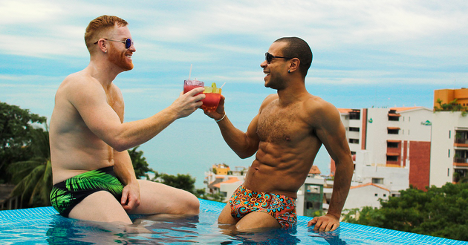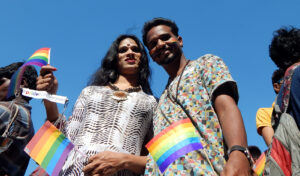When it comes to the list of countries that are friendly and safe for queer travelers in Asia, Thailand is one of the leaders. Thailand really is one of the most gay-friendly countries in the world, but as with any travel, it’s always best to go with eyes wide open and heart full of hope.
In this ultimate guide, we’ll be discussing the details of traveling as an LGBTQ+ traveler in Thailand, including the nightlife, cultural etiquette, and more. Regardless of whether you are looking forward to your first trip to Thailand or are thinking of going back for the second or third time, the purpose of this article is to ensure that you are as safe and having as much fun as possible.
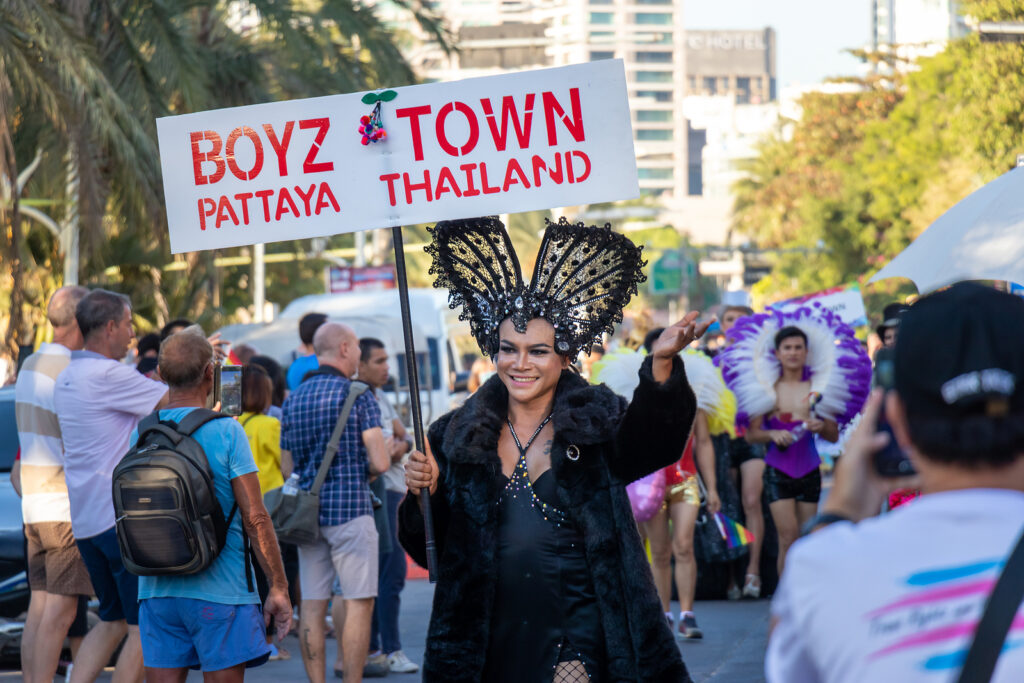
Do’s and Don’ts in Thailand
Yes, it is safe for the LGBTQ+ tourists in Thailand, but some things must be taken into consideration to avoid a conflict with the local culture. LGBTQ+ rights in Thailand are well protected by the laws of the country, and there is a visible and active gay life in the country, particularly in Bangkok and Phuket. But it is important to know that despite the general openness the country offers, there are still some things that are allowed and some things that are prohibited.
Let us consider the first rule of engagement; always respect the people’s culture and way of life. Even though Thailand is liberal in many ways, it is a very conservative country for the most part and even more so in the rural areas. Another crucial point to bear in mind is that people there are not very enthusiastic about the manifestation of affection in public places, and this rule applies to homosexual couples as well. This applies to both heterosexual and homosexual relationships as well as to all other forms of human relationships. It is all right to take hands but kissing or any other amorous touches may cause some attention or discomfort to the locals.
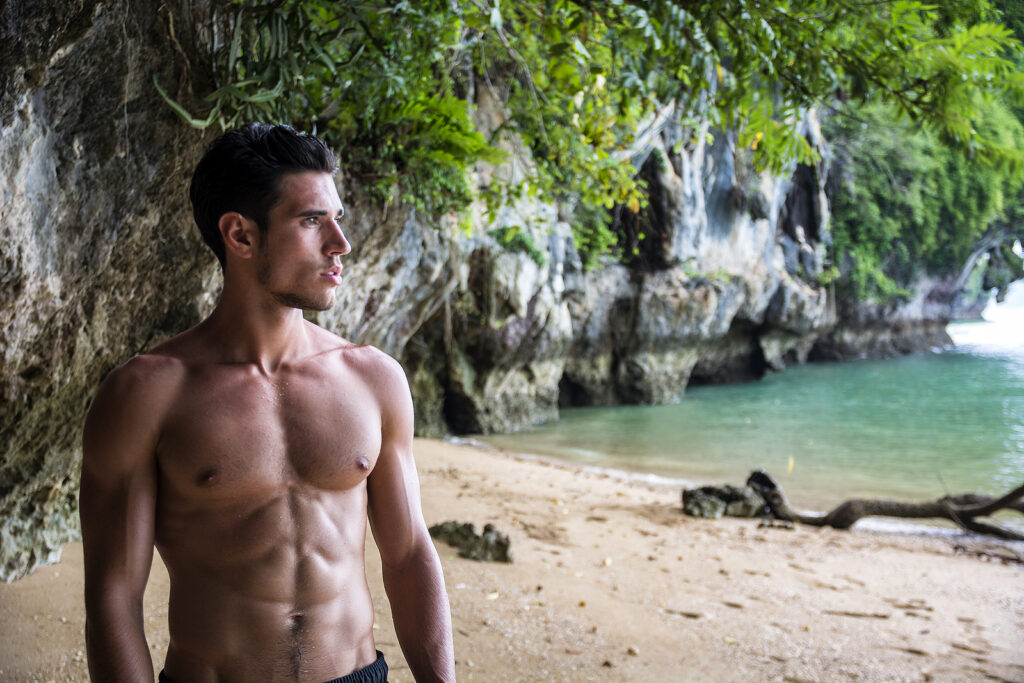
When it comes to dress code, Thais are fairly liberal, especially in beach areas and the nightlife. It is however polite to wear appropriate dressing code, especially when visiting areas of worship such as temples. This means that both male and female will be expected to dress modestly by not exposing their shoulders and knees. Guests are also expected to take of their shoes when they are in temples, homes and some shops, so it is wise to do so.
Another crucial factor to highlight is the Thai ‘face’ saving culture. This means not embarrassing someone or creating a scene that would have the other person humiliated in front of others. If there are any disputes or problems it is still more appropriate to solve them quietly and without creating a scandal.
Thailand is generally friendly to transgender tourists, especially because the country has, for a long time, embraced gender variance. But as much as there is social acceptance, there is still very little legal acceptance of the change of gender. Transgender people should walk around with their passport or any form of identification bearing their physical appearance.
As for the nightlife and entertainment, Thailand is quite friendly with people of the LGBTQ+, and you can find a lot of friendly bars and clubs in Bangkok, Phuket, and Pattaya. However, as is the case with any tourist destination, one should be wary of fraudsters and always be cautious against theft, especially at night or in areas with high traffic.
Finally, it is crucial to understand that although Thailand has improved the situation for the LGBTQ+ community, same-sex marriage remains illegal in the country. However, civil partnerships are being contemplated, which will provide same-sex couples with many of the same benefits as heterosexual married couples.
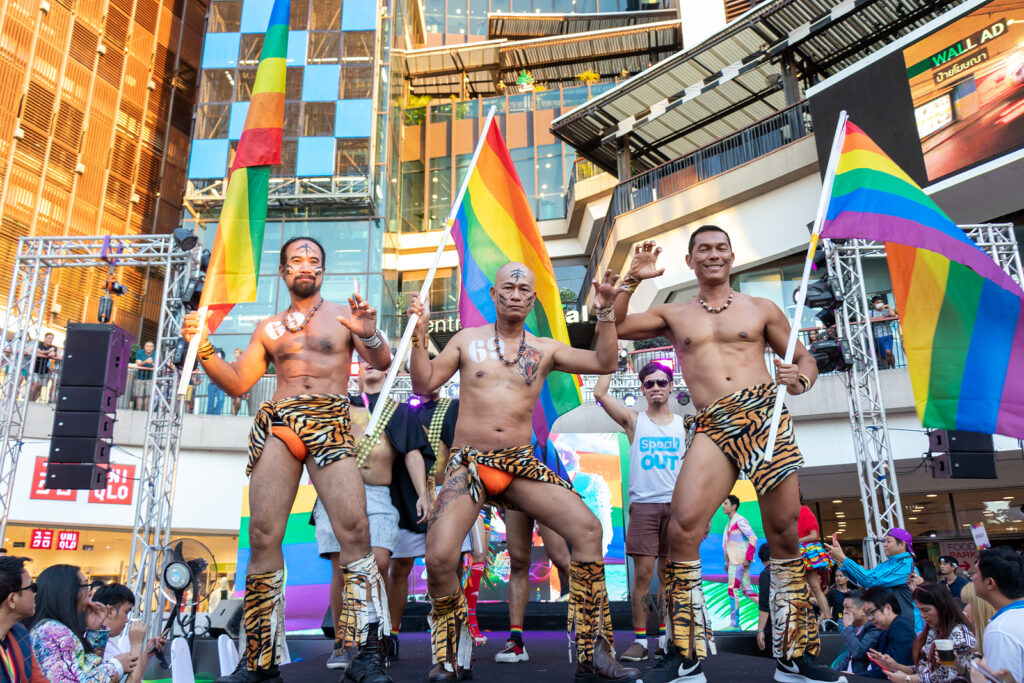
Is There a Gay Scene in Bangkok?
Yes, Bangkok has a very active and diverse gay scene that can suit almost any preference and interest for the members of the LGBTQ community. Bangkok having been the capital city of Thailand and a popular travel destination, it has been a pioneering city in the region when it comes to the lifestyles of the LGBTQ+ community. The gay scene here is not only vibrant, diverse, and active, but it is also vibrant and developing all the time.
The core of the Bangkok gay entertainment scene is in the Silom area, especially Soi 2 and Soi 4. After the sun sets these streets are filled with numerous Gay bars, clubs and cabaret. DJ Station on Soi 2 is one of the most visited and beloved gay clubs in Asia, famous for the enthusiastic crowd and dancing till the morning. Neighbouring Telephone Pub on Soi 4 is less raunchy and is rather popular as a place for socializing and chatting with locals and other travelers.
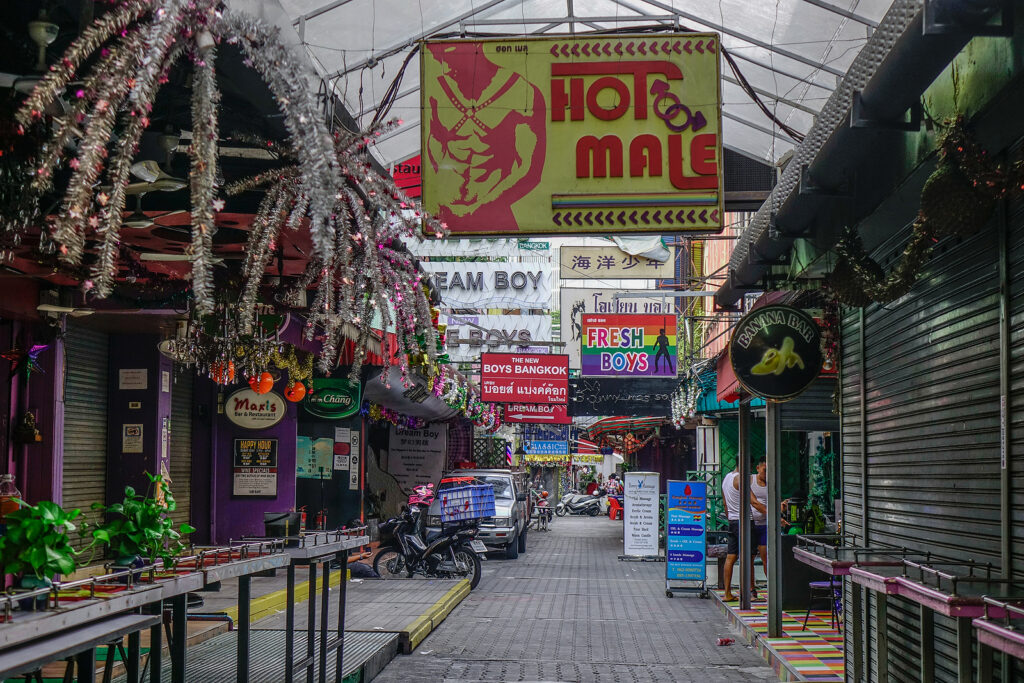
But being Bangkok, it is not restricted to just clubs and bars when it comes to gay entertainment. The city also has many events that are friendly towards the LGBTQ+ community throughout the year. Bangkok Pride, recently revived annually, is a colorful event that aims to raise awareness of the equality of homosexual people. Furthermore, daily drag shows, arts, and cultural events, and movie screenings are tailored for the targeted LGBTQ+ audience and supporters.
For those who prefer a less night oriented gay scene in Bangkok there are gay saunas and spas which operate during the daytime. These are common areas for leisure and interaction and may also come with other luxury features such as fitness centers, swimming pools and spas. However, constant disclosure should be made that while the spaces are inclusive, one should always be safe and ask for consent at all times.
Gay-friendly places and areas are not left out in Bangkok, and this also encompasses accommodation. In the city, most hotels do not hide the fact that they welcome the LGBTQ+ community, and there are some hotels that directly target gay tourists. These include high-end hotels for LGBT travelers wishing to splurge on budget accommodations for those who wish to save their money for travel experiences.
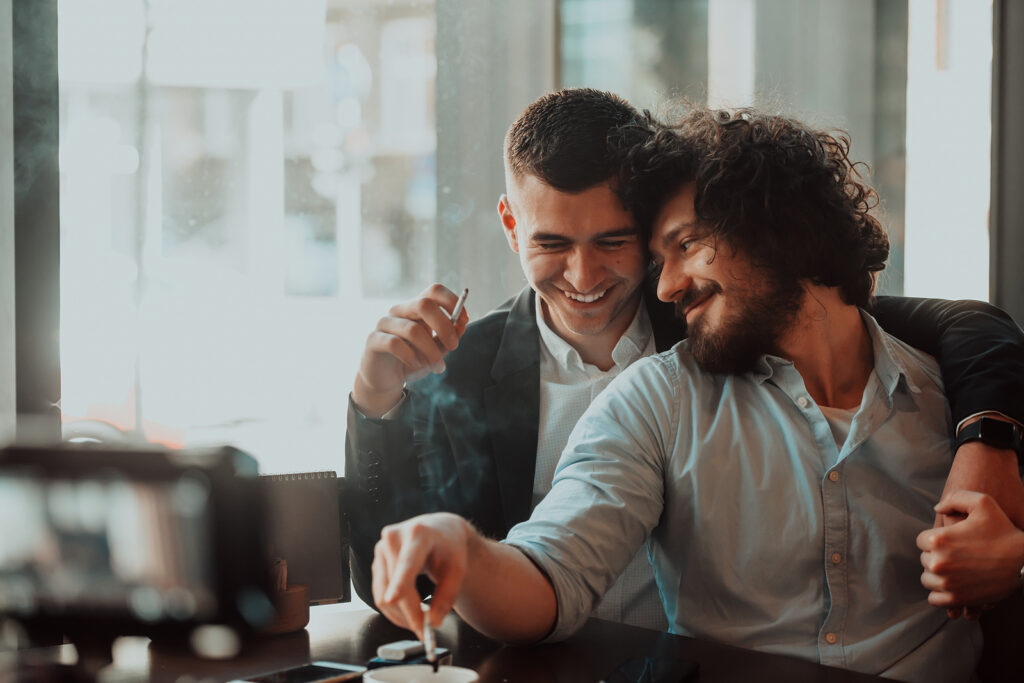
Is Kissing Common in Thailand?
No, Thai people do not often kiss in public spaces, whether they are married, gay, or lesbian. This is a cultural attribute that every traveler should bear in mind particularly those with LGBTQ+ status intending to visit the country. Thailand is popular for its friendly and welcoming disposition, especially to the members of the LGBTQ+ community. However, PDA is not well accepted in Thai culture.
As a rule, Thai people show restraint when it comes to physical contact; it is not common for strangers to embrace or kiss. This does not mean that Thai people are unemotional or unfriendly – on the contrary. Male friends hold hands or sit close to each other, which is very natural as an indication of friendship or camaraderie. Nevertheless, affectionate signs such as kissing, embracing for a long time, or overly sexual contact are generally prohibited in public places.
This cultural norm is not limited to heterosexual couples but also includes couples in the Lesbian, Gay, Bisexual, Trans, Queer and intersex community as well. It has nothing to do with the discrimination of same-sex couples but could be as simple as people wanting their intimate moments shielded from the public domain. However, passionate kissing between opposite-sex partners will not be very common, especially outside the ‘couples only’ foreign beach resorts and some nightlife zones.
For the LGBTQ+ travelers, it is also crucial to bear this cultural practice in mind. As a whole Thailand is quite tolerant of the LGBTQ+ community, particularly in the big cities and tourists zones however, affectionate gestures might cause attention or discomfort. This does not mean that one has to deny the existence of a relationship or gay identity but to show affection in a cultural appropriate manner.
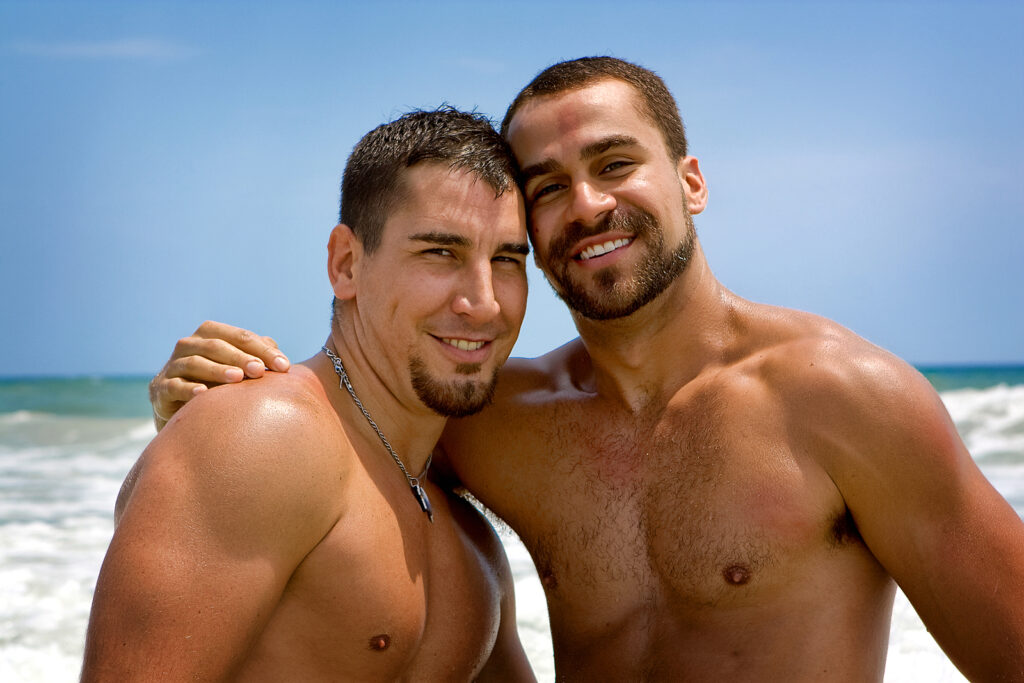
So, what forms of affection are allowed for a couple in public? A light pat or a short embrace is also normally acceptable. The point is not to overdo it and to be as polite as you can to the people around you.
Conclusion
To sum up, the information provided in this guide for LGBTQ+ travelers to Thailand remains evident that Thailand is one of the most friendly Asian countries to visit as an LGBTQ+ tourist. It starts with the lively gay life in Bangkok and extends to the overall fairly tolerant attitude to homosexuality throughout the Kingdom. However, like in any other country tourism, it is very important to go with a lot of excitement as well as respect for the culture of the people of the country.
Staying safe abroad is paramount for any traveler, and LGBTQ+ individuals are no exception. For more in-depth advice on navigating cultural sensitivities as a gay traveler, I highly recommend checking out this comprehensive guide: Navigating Cultural Sensitivity: Tips for Gay Male Travellers. It offers valuable insights that can enhance your travel experiences not just in Thailand but around the world.
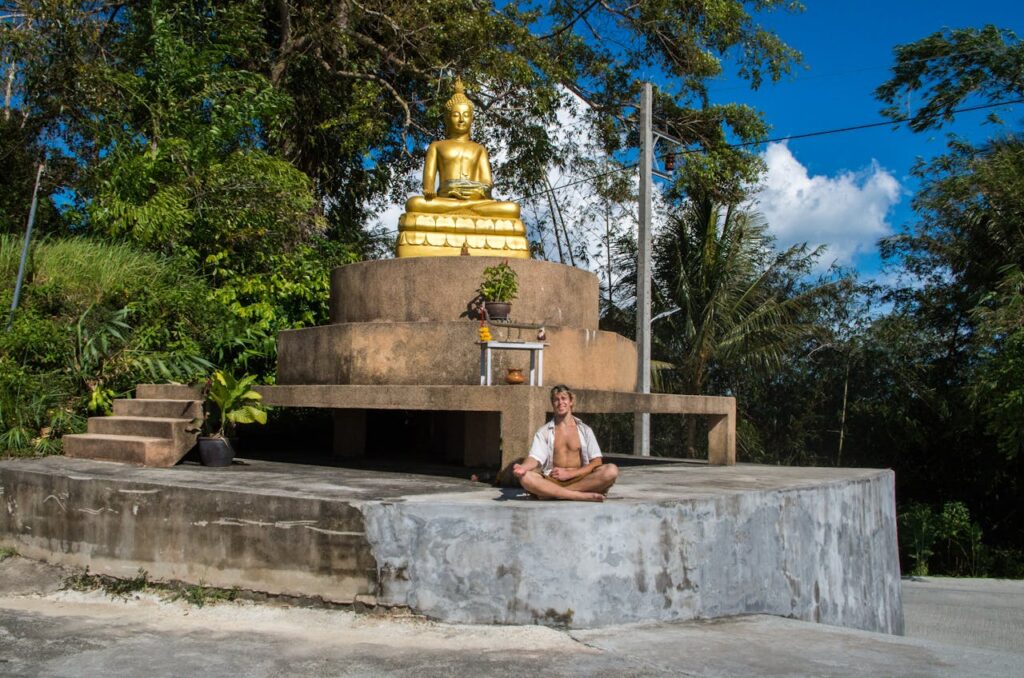
Thailand is where your journey starts to the plethora of gay-friendly destinations that the world has to offer. If you want to find more places that are friendly for the representatives of the LGBTQ+ community or if you want to receive more helpful tips, I welcome you to read the other destination guides and information on Gay Couple Getaway. Our site is informative and updated with the latest and most appropriate information to empower you as an LGBTQ+ traveler to go out and explore the world.
